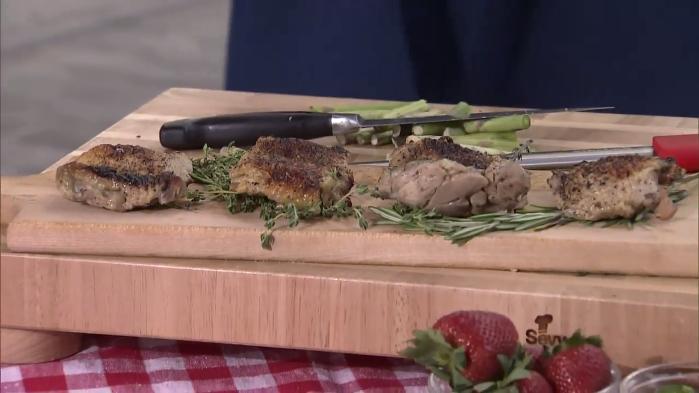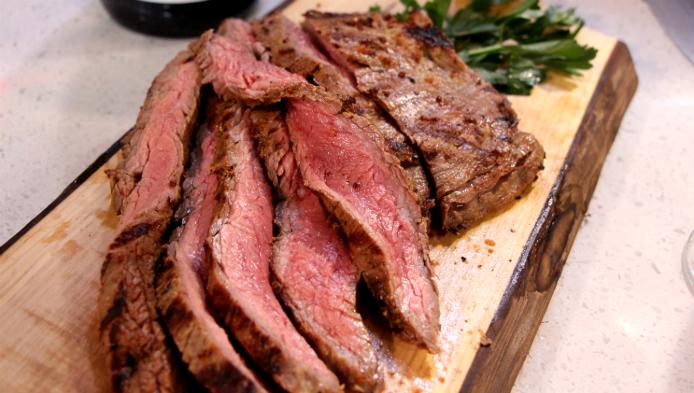Marinating is a great way to tenderize meat and enhance flavour before grilling. Like a great vinaigrette, the key to an amazing marinade is balance. By using a blend of oils, vinegars, spices and herbs, you can find your optimal flavour combination.
Once you understand the fundamentals, remember to always marinate in the fridge; this stops bad bacteria from multiplying, and keeps meat at a safe temperature. Also, always marinate in a re-sealable bag or a sealable plastic or glass container, as opposed to a metal bowl (the acid in the marinade will react with the metal).
1. Oils
The oil works to lock in the natural flavour and moisture of the food. They can also add flavour; olive oil is more neutral with earthy notes, while sesame oil is more aromatic and nutty.
Tip: A marinade doesn’t have to include liquid ingredients; a dry rub made up of herbs and spices is also a type of marinade.
2. Acidity
Acidity is the most important component in the marinade as it is what breaks down the surface tissue and allows the meat to soak up flavour. Acidic ingredients like vinegar, citrus and yogurt also add flavour; lime juice is great for Mexican-style dishes, while buttermilk will keep foods moist and is often used in Indian cuisine.
Tip: Salt is able to penetrate and carry flavour and moisture throughout the meat, be sure to include this flavour enhancer.
3. Seasonings
Seasonings are what boost the flavour of the marinade. Both fresh and dried ingredients can be used; try aromatic herbs like rosemary and oregano or add some kick with chilli powder or cayenne pepper. Get started on experimenting with different pairings by trying our Asian marinade or a zesty lemon-pepper marinade.
Tip: If you’re using garlic, swap fresh for dry, as it won’t burn on the grill. (Burnt garlic has an unpleasant bitterness.)
4. Sweetness
While sweeteners impact the flavour and help balance out the acidity in a marinade, it also contributes to the browning and charring of the meat. It can come in a variety of different forms such as granulated sugar, honey, molasses, or maple syrup. Honey and granulated sugar are both great neutral options, whereas molasses, adds depth and complexity, and maple syrup will add buttery, caramel flavour notes.
Tip: A little goes a long way, so use sweet ingredients sparingly to avoid burning.
What should you marinate?
A marinade is more of a surface treatment, so opt for small or thin cuts of meat or fish with large surface areas for optimal flavour. You can also marinate vegetables; mushrooms, eggplant and zucchini are well-known for their ability to absorb flavours and are great vegetarian options.
Tip: The typical marinade-to-meat ratio is 1/2 cup of marinade per pound of meat. And seafood requires very little time to marinate – the acidity can actually start to cook the fish, so keep marinating time to under an hour.




